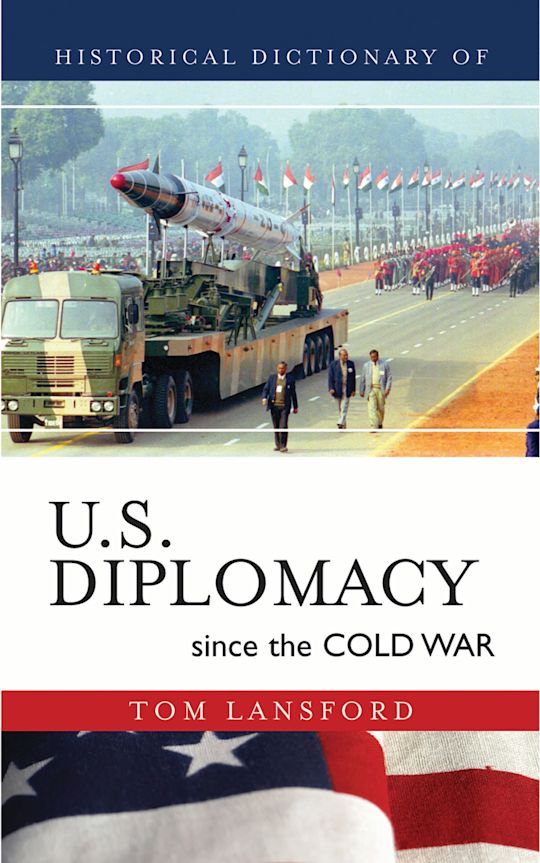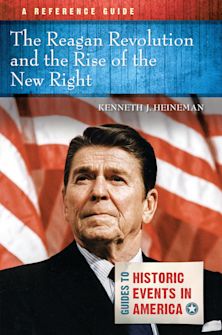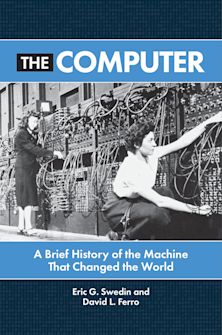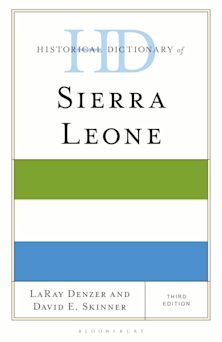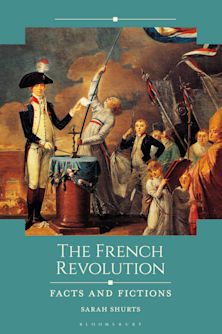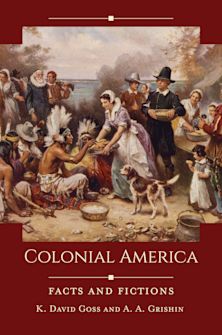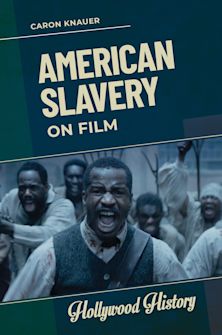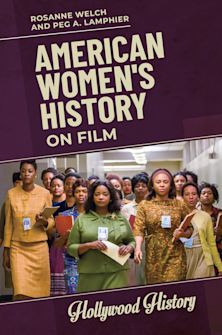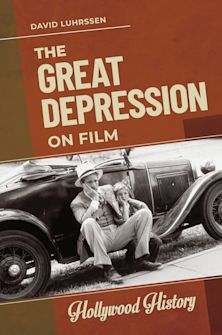Historical Dictionary of U.S. Diplomacy since the Cold War
Historical Dictionary of U.S. Diplomacy since the Cold War
You must sign in to add this item to your wishlist. Please sign in or create an account
Description
The post-Cold War diplomacy of the United States evolved in stages that reflected changes in the international system. Through the 1990s, the nation's foreign affairs were marked by an evolution away from the post-World War II focus on security and superpower competition to a more multifaceted and nuanced series of policies that included economic concerns, social and cultural issues, and environmental matters. However, an escalating series of terrorist attacks that culminated in the 11 September 2001 strikes on New York and Washington, D.C. led to the reemergence of security as the main foreign policy issue for the United States. The subsequent American-led "war on terror" mirrored the Cold War in its goals, and the administration of President George W. Bush endeavored to build a multinational counterterrorism coalition that paralleled the Western alliance of the bipolar era.
The Historical Dictionary of U.S. Diplomacy Since the Cold War is a concise overview of the main figures, conflicts, events, and policies of the United States in the post-Cold War era. The study explores the main elements of U.S. foreign policy and the regional and international reaction to American policies from the presidency of George H. W. Bush to that of George W. Bush. Through its entries, the book analyzes the underlying themes of U.S. diplomacy and the new policies formulated and implemented in response to broad changes in global politics. The book includes a chronology of events from 1991 to 2007, an introduction that highlights important themes of the era, cross-referenced entries on significant topics, a detailed bibliography, and appendixes of major documents. The work is ideal for both public and academic libraries, the general public, or the specialist looking for a reference tool in this area.
Table of Contents
Part 2 Acronyms and Abbreviations
Part 3 Chronology
Part 4 Introduction
Part 5 THE DICTIONARY
Part 6 Appenidxes
Chapter 7 A Presidents and Terms of Office, 1989-2007
Chapter 8 B Secretaries fo State, 1989-2007
Chapter 9 C Major Speeches and Documents
Part 10 Bibliography
Part 11 About the Author
Product details
| Published | Sep 10 2007 |
|---|---|
| Format | Ebook (Epub & Mobi) |
| Edition | 1st |
| Extent | 392 |
| ISBN | 9780810864320 |
| Imprint | Scarecrow Press |
| Series | Historical Dictionaries of Diplomacy and Foreign Relations |
| Publisher | Bloomsbury Publishing |
About the contributors
Reviews
-
Recommended for American and diplomatic history collections.
Library Journal
-
Lansford (political science, University of Southern Mississippi-Hattiesburg) overviews the main figures, conflicts, events, and polices of the US in the post-Cold War era. He explores the main elements of US foreign policy and the regional and international reaction to American policies from the presidency of George H. W. Bush to that of George W. Bush. Alphabetical entries, most about one page long, analyze the underlying themes of US diplomacy and the new policies formed and implemented in response to broad changes in global politics. The reference also includes a chronology of events from 1991 to 2007, an introduction highlighting important themes of the era, cross-references, and appendixes of major documents. The extensive bibliography of print resources (27 pages) is divided into 26 topics.
Reference and Research Book News
-
The work's overall quality is good and it is recommended.
American Reference Books Annual

ONLINE RESOURCES
Bloomsbury Collections
This book is available on Bloomsbury Collections where your library has access.








